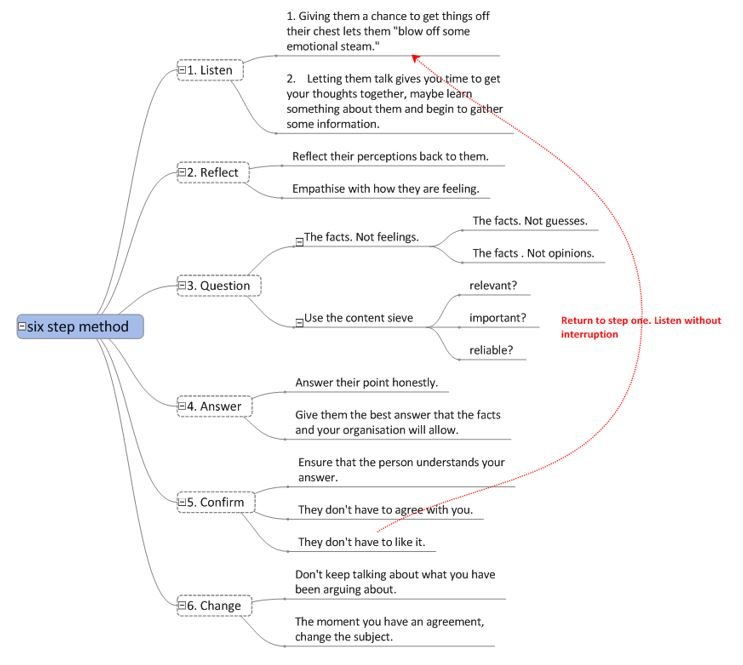Grievances At Work
Grievances in the Workplace
Grievances at work can be time consuming.
There are two approaches that may be used to handle grievances in the workplace.
- Prevent grievances from happening, by eliminating their causes.
- When grievances do occur, handle them effectively.
Let us look at the two approaches and build two methods.
Prevention is better than cure.
Grievances are usually caused by one of four things.
- What someone did.
- What someone failed to do, or
- What someone said.
- What someone failed to say.
If you can improve the quality of the performance, and especially the language, of the key members of your management and leadership team, then the incidents of grievances will be reduced.
If there are certain people whose behaviour or language tends to generate problems, then you may want to train them.
Train them on personal effectiveness skills and ask them to stop doing the things that cause the problems, (which is often the way they communicate to colleagues).
If you want to prevent the grievances, then send your managers on our two-day leadership programme.
What if you cannot prevent it and you have an existing grievance?
Six-Step Method to Handling Grievances
These six steps will help you handle grievances effectively:
- Listen without interruption.
- Empathise (without implying agreement).
- Question to get the facts (apart from the feelings).
- Answer: Logically evaluate the facts and formulate your answer.
- Confirm: Ensure they understand your answer.
- Close the conversation or change the subject, when understanding has been reached.

Summary: How to handle grievances in the workplace
If you want to learn more about how to effectively handle grievances at work, please take a look are our Conflict Management training course.
It is worth memorising this list and remember the method, next time you need to handle a grievance.
- Listen.
- Reflect.
- Question.
- Answer.
- Confirm.
- Close.
Blogs by Email
Do you want to receive an email whenever we post a new blog? The blogs contain article 5-10 minutes long - ideal for reading during your coffee break!
Further Reading in Conflict Management and Handling Difficult People
-
Management skills training - Giving constructive criticism
Giving constructive criticism Giving constructive criticism is one of the most important skills for the leader/ manager. Constructive criticism is criticism of a person's behaviour, work performance or idea, which is perceived by the receiver, to be more like help, or friendly guidance, rather than "a telling off". Constructive criticis...
Read Article > -
How to Deal With Difficult Employees
Whether difficult employees disagree with our current plan, or their behaviour is challenging, they should be treated according to the principles of reason. We examine the steps that should be taken when dealing with difficult people.
Read Article > -
De-escalation Skills
De-escalation of a difficult situation is vital, in order to avoid it becoming a crisis or conflict. Take a look at these de-escalation techniques you should master that will allow you to take control of a situation and defuse a potential conflict.
Read Article > -
Using Reason to Handle Difficult People
If you wish to get on with difficult people, then appeal to their sense of reason. Treat all problems, and all people according to the principles of reason.
Read Article > -
Top Ten Conflict Management Techniques
Your organisation needs people to cooperate. However, inevitably people disagree, which can lead to conflict situations. It is important to learn conflict management techniques, since conflicts are costly and disruptive.
Read Article >
Looking for Conflict Management Training?
If you're looking to develop your Conflict Management and Handling Difficult People Skills, you may find this Conflict Management Training Course beneficial:
Open Training Course Pricing and Availability
Next Open Course Starts in 3 days, London - Central, places available





